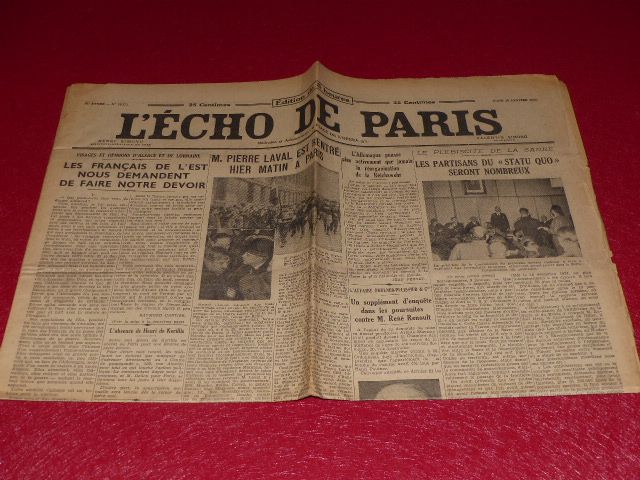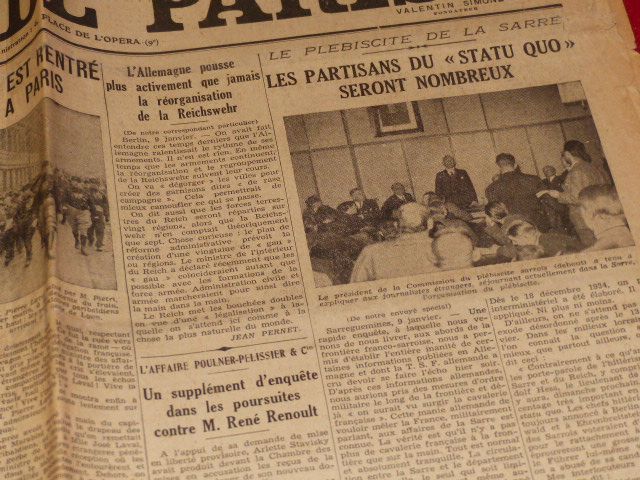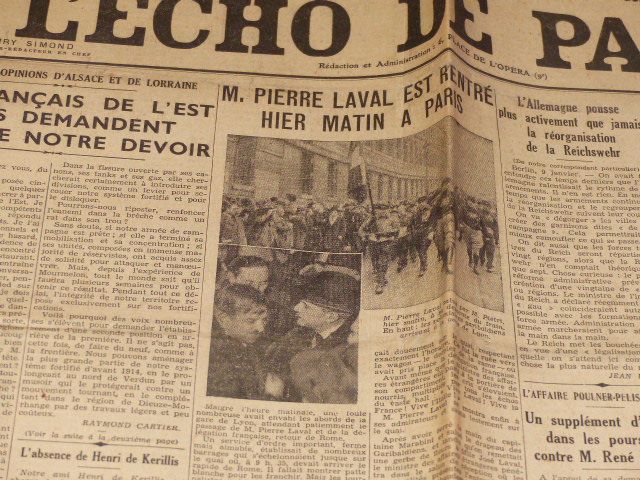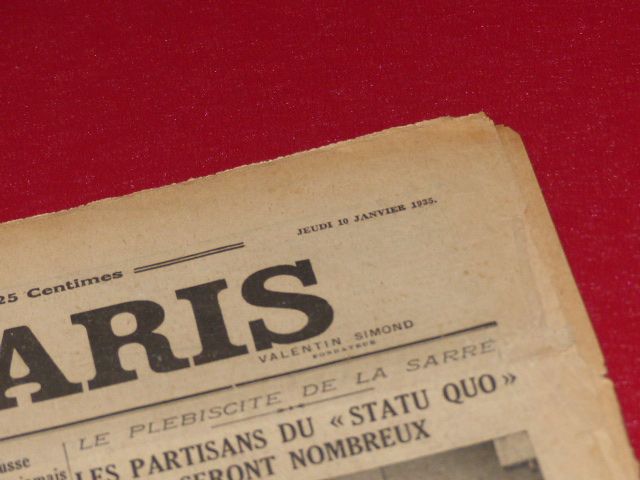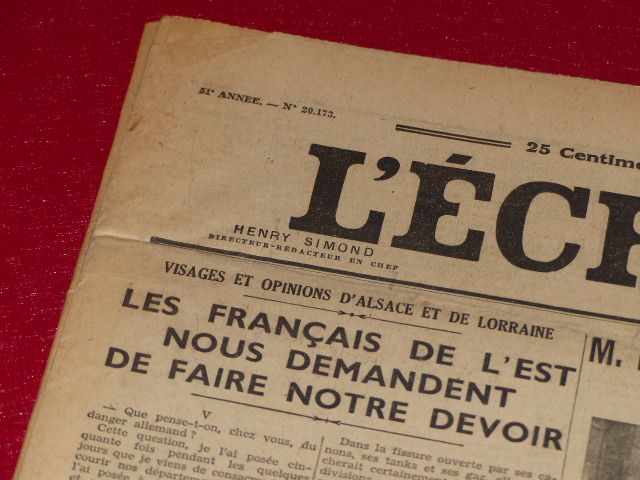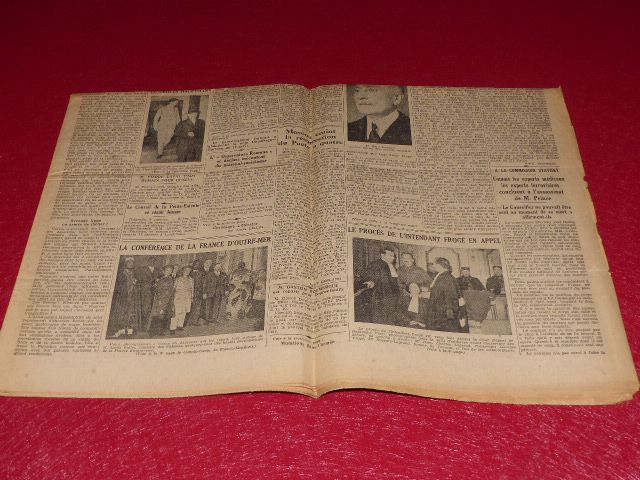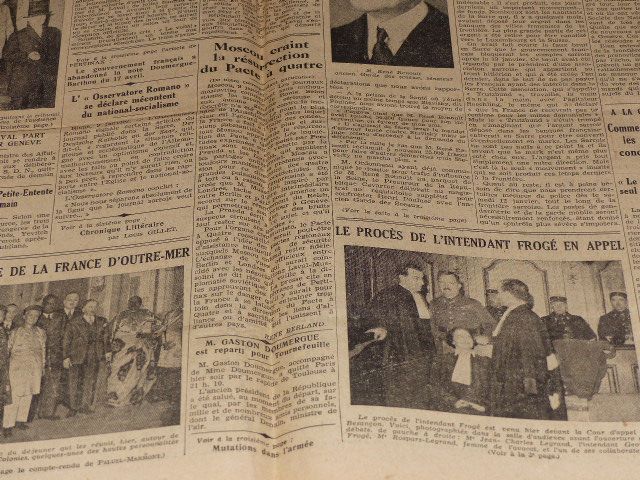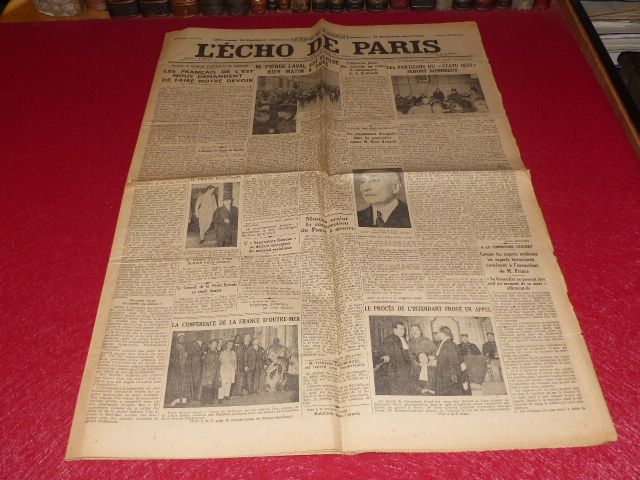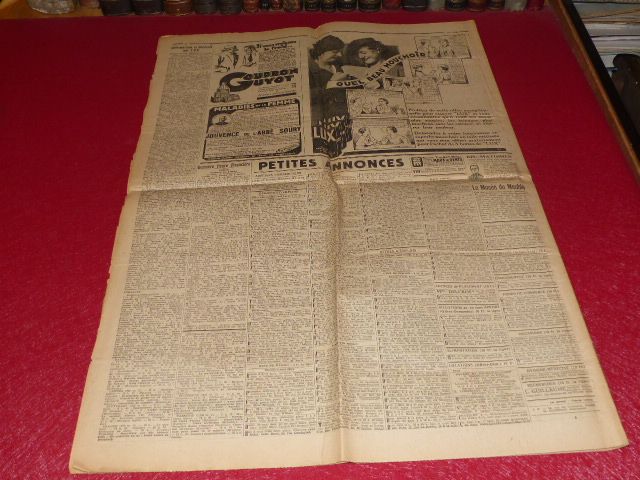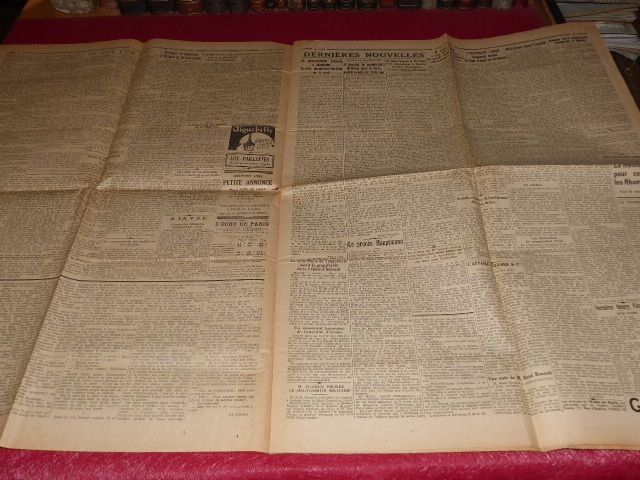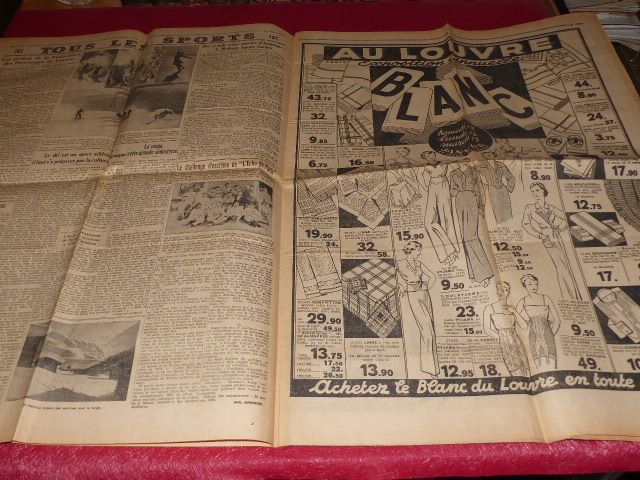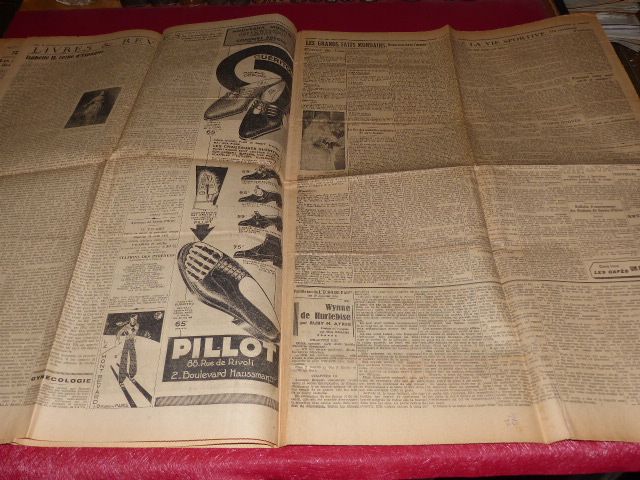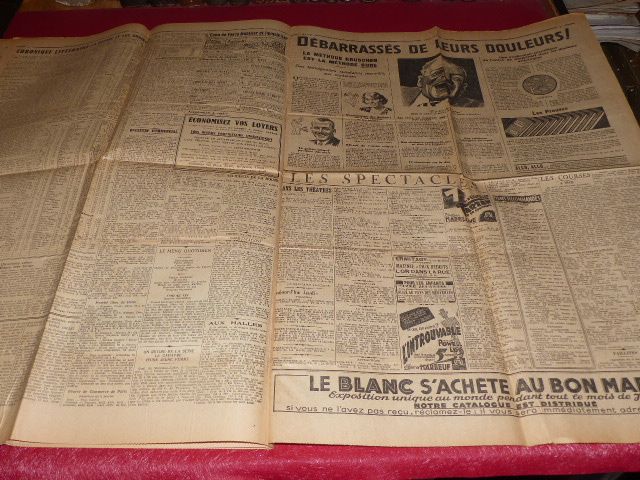[PRESS - PRE-WAR]
The echo of Paris
The echo of Paris
Day-to-day
51st year - No. 20173
Thursday, January 10, 1935
-
First Printing
Original Edition
In-Folio, (about 60x43cm), 8pp.
-
Newspaper yellowed like always
copy folded in 4, folds and various small tears,
Newspaper yellowed like always
copy folded in 4, folds and various small tears,
folds on folds and on edges, small stains and holes, etc...
Fair-fair condition
see visuals...
rare document
Sold in the condition described, as found
other magazines and rare period documents from the same source will be sold soon
concerning the Press at the Liberation of Paris in 1944, at the Capitulation of Germany in 1945 and at the end of the Second World War, and also about before and after the war
rare document
Sold in the condition described, as found
"The Echo of Paris"
The Echo of Paris is a French daily newspaper created under the Third Republic, published between 1884 and 1944, with a rather conservative and patriotic orientation. It was owned by the wealthy Edmond Blanc (1856-1920).
The Echo of Paris was founded on March 12 Mars 1884 by Valentin Simond. First morning newspaper, it became evening newspaper in 1885, and became morning daily again in 1888. Aurélien Scholl was its main editor from the start and, with Simond, formed the duo that made the newspaper so successful.
Octave Mirbeau collaborated there during the 1880s and serialized his novels there. Sebastien Roch (1890), The Diary of a Maid (1891) and In the sky (1892-1893). The radical Georges Clemenceau wrote a few articles there in 1897, just before taking part in the Dreyfus Affair.
After the Courrières disaster (1906), the strike spreading
L'Echo de Paris, distraught, headlines "Towards the Revolution".
At the end of the First World War, in the fall of 1918, like other right-wing newspapers (Le Matin, French Action...), The Echo of Paris demonstrates an extremism, advocating marching on Berlin to sign the armistice there. The following year, however, he supported Council President Clemenceau at the peace conference, hoping to bring Germany to its knees for good.
In the 1930s, this conservative literary and political newspaper (evening and then morning), was close to the League of Patriots of Paul Déroulède, then later to the French Social Party from 1936. Its editor-in-chief was Henri de Kérillis. The head of the Foreign Affairs section was André Géraud (Pertinax), and the head of the entertainment section was Paul Gordeaux, assisted by Pierre Lazareff. There were other feathers, such as Raymond Cartier, Henry Bordeaux, or even Jérôme and Jean Tharaud.
Entitled Echo of Paris until March 28 Mars 1938, he took the name of Day-Echo of Paris because of its merger with the newspaper The day whose first issue dated October 4, 1933. From June 12, 1940, the newspaper was published in the South Zone (Poitiers, Clermont-Ferrand, Marseille, then, again Clermont-Ferrand), then scuttled in 1942.
Directors & Officers:
Valentin Simond -
Edmond Blanc (Deputy-mayor) -
Paul Simond-
François Edmond-Blanc (son of Edmond) -
Henry Simond (1863-1937)
Notable collaborators:
Maurice Barres -
Jean Delage-
Etienne Mairesse -
Guy de Maupassant -
Catulle Mendes
Octave Mirbeau-
François Mitterrand, responsible for the “Student Life” section from July 1936 to July 1937 -
Abel Peyrouton-
Louis Piechaud -
Jules Poignand (Montjoyeux) -
Adolphe Possien-
Fernand Sarnette -
Armand Silvestre-
Laurent Tailhade -
Adolphe Tavernier-
Fernand Xau
-
To follow on ebay...
concerning the Press at the Liberation of Paris in 1944, at the Capitulation of Germany in 1945 and at the end of the Second World War, and also about before and after the war
-
